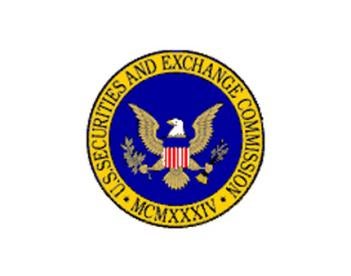It’s no secret that the SEC is stepping up its enforcement efforts in the estimated $3.7 trillion municipal securities market. In 2012, the Commission published a 165-page report calling for Congress to give it more authority to improve disclosures in municipal bond offerings. See SEC’s Report on the Municipal Securities Market (July 31, 2012). In the last year, the Commission has filed a number of enforcement actions against municipal bond issuers and underwriters based on alleged misstatements or omissions concerning various topics, including: compliance with tax exemption requirements, continuing disclosure obligations, and debt limitations and property values.
Most recently, in March 2014, the SEC launched a new cooperation initiative designed to encourage issuers and underwriters of municipal securities to self-report certain violations of federal securities laws. Under the Municipalities Continuing Disclosure Cooperation Initiative (“MCDC Initiative”), SEC staff will recommend favorable settlement terms for issuers and underwriters who self-report that they have made inaccurate statements in bond offerings about their prior compliance with continuing disclosure obligations specified in Rule 15c2-12 under the Securities Exchange Act of 1934.
As discussed below, while the MCDC provides some potential benefits to municipal bond issuers and underwriters, it does not extend to individuals involved in these transactions: municipal employees, finance managers, or financial advisors. While billed as a “cooperation” initiative, the MCDC serves as the Commission’s shot across the bow to individuals involved in municipal bond offerings.
I. Rule 15c2-12
For years, the SEC has relied upon Rule 15c2-12 to incentivize issuers and underwriters to comply with their disclosure obligations in the municipal securities market. Rule 15c2-12 generally bars underwriters from purchasing or selling municipal securities unless the issuer has committed to providing continuing disclosures regarding the security and the issuer’s financial condition and operation data. The rule also requires that the official statement include disclosures of any instance in the previous five years in which the issuer failed to comply with any previous commitment to provide such continuing disclosure.
In theory, because underwriters must rely upon the veracity of the issuer’s disclosure, the underwriter has an incentive to affirmatively inquire as to issuer’s filing history. Based on the Commission’s July 2012 Municipal Market Report, however, it is clear that the SEC believes (1) that many issuers have not been complying with their continuing disclosure obligations, (2) that underwriters are not doing their due diligence, and (3) that the problem is widespread. To combat these problems, the Commission instituted the MCDC Initiative.
II. When and How to Self-Report
To be eligible for the favorable settlement terms under the MCDC Initiative, an issuer or underwriter must self-report by submitting a questionnaire to the Commission by September 10, 2014. The issuer or underwriters must disclose:
- Information regarding the offering containing the potentially inaccurate statements;
- All parties involved with offering, including the lead underwriter, municipal advisor, bond counsel, underwriter’s counsel, and disclosure counsel;
- Facts that may have led to the potentially inaccurate statements; and
- A statement that the self-reporting entity intends to consent to the applicable settlement terms under the MCDC Initiative.
Questionnaire submissions may be made by email to MCDCsubmissions@sec.gov, by fax to (301) 847-4713, or by mail to MCDC Initiative, U.S. Securities and Exchange Commission, Boston Regional Office, 33 Arch Street, Boston, MA 02110.
III. Standardized Settlement Terms
If an issuer and/or underwriter comply(ies) with the requirements set forth above, the Enforcement Division will recommend that the Commission accept a settlement which includes the following terms:
|
|
Issuers |
Underwriters |
|
Nature of Charge |
Cease and desist proceeding; Issuer neither admits nor denies Commission’s findings |
Cease and desist proceeding; Underwriter neither admits nor denies Commission’s findings |
|
Undertakings |
• Establish policies, procedures, and training regarding continuing disclosure obligations within 180 days • Comply with existing continuing disclosure obligations and update past delinquent filings within 180 days • Cooperate with any subsequent Commission investigation • Disclose terms of settlement agreement in any future offering (5 year max) • Provide Commission with a compliance certification of above requirements on the one year anniversary of proceedings |
• Hire independent consultant to conduct compliance review within 180 days • Take reasonable steps to implement independent consultants recommendations regarding due diligence processes and procedures within 90 days after compliance review • Cooperate with any subsequent Commission investigation • Provide Commission with a compliance certification of above requirements on the one year anniversary of proceedings |
|
Civil Penalties |
None |
• Offerings of $30m or less: $20,000 per offering • Offering of $30m or more: $60,000 per offering • Maximum penalty: $500,000 |
The MCDC’s settlement terms, when compared to the Commission’s recent settlements involving municipal bond issuers and underwriters, appear advantageous. For example, in In re West Clark Community Schools, which involved a $31 million municipal bond offering, the underwriter agreed to pay nearly $580,000 to settle the Commission’s charges that the issuer falsely reported to investors that the school district had been properly providing annual financial information and notices as required by the school district’s prior bond offerings. The Commission obtained a similar result in In the Matter of The Greater Wenatchee Regional Events Center Public Facilities District, a $41.77 million bond offering that financed the construction of a regional events center and hockey area, where the bond issuer agreed to pay $20,000 (along with implementing several other remedial actions) and the underwriter agreed to pay $300,000 to resolve the Commission’s charges that the official statement was materially false and misleading.
IV. So What About the Individual Municipal Officials?
While the MCDC potentially provides some advantages to reporting issuers and underwriters, no such advantages are extended to individuals: the municipal officers or employees who sign the official statement or certify the issuer’s disclosures. In fact, the SEC’s press release places a bullseye around individuals involved in these transactions, stating that the MCDC “provides no assurances that individuals … such as municipal officials and employees of underwriting firms, will be offered similar terms if they have engaged in violations of the federal securities laws.” So while the MCDC shields issuers who self-report securities violations from paying any civil fees, the violations reported by the issuer may lay the groundwork for the SEC to charge the issuer’s employees. Indeed, because the MCDC requires issuers to cooperate in any subsequent SEC investigation, the issuers must cooperate in any investigation brought against its employees!
Chair Mary Jo White’s recent statement lends credence to the fact that the SEC is actively seeking actions against individuals and officials who sign offering documents containing inadequate disclosures:
Individuals tempted to commit wrongdoing must understand that they risk it all if they do not play by the rules. When people fear for their own reputations, careers or pocketbooks, they tend to stay in line.
SEC Chair Mary Jo White, Deploying the Full Enforcement Arsenal, Address to the Council of Institutional Investors, Fall Conference, Chicago, IL (Sept. 26, 2013).
The MCDC is a carrot to issuers and underwriters to self-report securities violations that furthers the Commission’s effort to increase transparency in the municipal securities market. The MCDC is also a stick that the SEC will use to hold individuals in the municipal market who don’t “play by the rules” accountable.




 i
i


